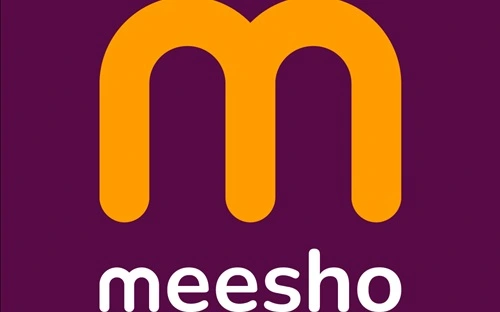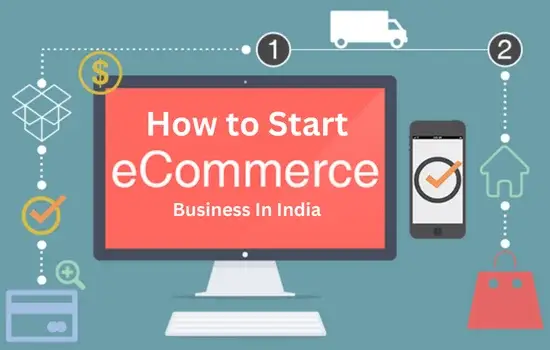An Indian firm named Fashnear Technologies Private Limited, is the owner of the online shopping platform Meesho. With a strong reliance on third-party social media sites like Instagram and Facebook, it is a virtual marketplace that makes trading between resellers, suppliers, and customers easier. Meesho, sponsored by SoftBank and valued at around USD 5 billion, is one such firm in this market. It says it has a special business plan that helps small enterprises.
Meesho Origin Story
IIT Delhi alums Vidit Aatrey and Sanjeev Barnwal founded Fashnear Technologies Private Limited in July 2015 as an on-demand delivery service similar to Swiggy but for clothing from nearby stores. The launch was unsuccessful. The founders hatched the idea to relaunch the platform as Meesho, which would allow resellers to ship across the nation using social media platforms as marketing tools, in 2016. Time magazine listed Meesho as one of the most significant businesses of the year in 2023. Meesho also broke the 500 million download mark for the fastest shopping app that year.
Meesho Company Details
| Company Name | Meesho |
| Origin Country | India |
| Founded | 2015 |
| Founders | Vidit Aatrey, Sanjeev Barnwal |
| CEO | Vidit Aatrey |
| Headquarters | Bangalore, Karnataka, India |
| Industry | E-commerce, Social Commerce |
| Key Offerings | Online Reselling Platform |
| Number of Employees | Over 1,000 (as of last update) |
| Official Website | www.meesho.com |
Business Model of Meesho
Many Indians, particularly those from rural areas and the older generation, did not trust websites like Flipkart and Amazon, even as online shopping grew in popularity in the country.
Convenience stores, independent contractors, and other neighborhood businesses were more valued and reliable to them for their retail needs.
In addition, several ambitious Indian businesspeople lack the means and venue to market their goods. These folks include homemakers, stay-at-home mothers, and students who wish to launch their own companies but cannot do so due to a lack of an internet presence.
After realizing this, business partners Sanjeev Barnwal and Vidit Aatrey started formulating concepts for their company, “FashNear,” in 2015. They first focused on creating a hyperlocal retail and fashion business model that connected local vendors with online buyers; they called it “Swiggy for Fashion.” However, the model’s logistics and the idea’s implementation presented several challenges.
Following consumer behavior analysis and market research, FashNear was rebranded as “Meri E-Shop” (My E-Shop), also known as Meesho. It became one of India’s first systems to let regional retailers serve an online customer base and use social media to promote their stores. Meesho’s business concept attracted support from a number of investors and local shops quite rapidly.
Meesho Revenue Model
In addition to offering a one-stop shop for all seller, buyer, and reseller requirements, Meesho has developed a novel method of monetizing its platform. Meesho takes no commission on product profits, no penalties for order cancellations, late shipping, or other errors, and no listing costs compared to any other marketplace. This implies that 100% of the price differential between the price at which a thing is sold and the price at which it is purchased belongs to the seller.
Meesho Revenue Streams
Meesho has come up with a novel method to monetize its platform by employing the following paid services:
Shipping Charge
Meesho charges delivery costs to customers or resellers. Depending on the delivery area, this shipping cost varies greatly. The corporation charges separate shipping prices for each of the three delivery categories it has divided into: regional, local, and national.
The shipping partner receives payment for some shipping costs; the company keeps the remaining portion for profit. To make the product offer seem more appealing, the corporation does, however, include the cost of shipping in the total price displayed to the customer and includes free shipping in the offer.
Advertisements & Promotion
For interested vendors looking to advertise their goods, the organization provides to manage cost-per-click advertising campaigns. Sponsored advertising eventually results in higher sales because it is prioritized in search results and has greater visibility on the homepage. Weekly deductions from vendor rewards are used to cover the expenses of the advertisements.
Penalties
When buyers return merchandise, the firm charges the seller a shipping cost. Additionally, the firm charges 2.5% of the order value per day to sellers who choose “Next Day Delivery” but do not deliver on time. In addition, the business levies further seller penalties if the seller violates the conditions of the supplier agreement.
Conclusion
Meesho continues pursuing its primary business model of resale while fighting established platforms in full-fledged e-commerce warfare.















